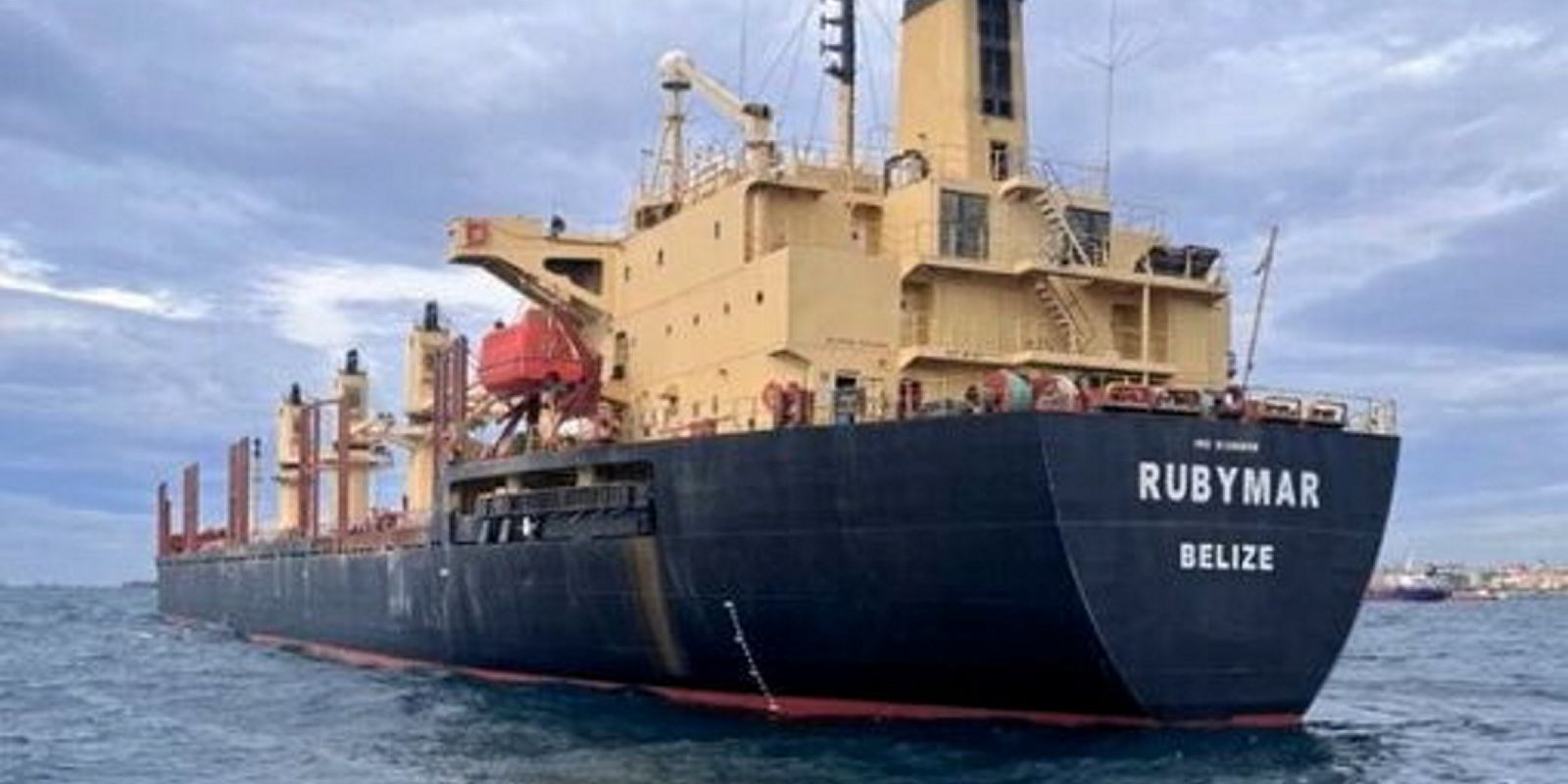A general cargo vessel abandoned by its crew after a Houthi missile strike late on Sunday is still afloat, despite a statement by the Yemeni militant group that it has sunk.
The Houthis had made that claim late on Monday, following an attack on the 32,200-dwt Rubymar (built 1997) at the Bab el-Mandeb strait.
As TradeWinds reported, that claim was only partially confirmed on Tuesday, when a maritime security intelligence company reported that the ship was spotted half-sunk but would “likely … be underwater in the following hours”.
Another maritime security source, citing military eyewitnesses in the area, informed TradeWinds that the vessel remained afloat as of early Wednesday.
An employee at the ship’s Lebanese manager, and likely owner, GMZ Ship Management, declined to give any information about the ship’s condition.
The Rubymar’s crew was already safely evacuated after leaving the vessel at anchor on Monday, with the assistance of the 2,082-teu container ship Lobivia (built 2001).
The Djibouti Port Authority announced that 24 seafarers — 11 Syrians, six Egyptians, four Filipinos and three Indians — arrived at the African port by late Monday on board the 250-gt tug boat Mont Arrey (built 2014).
That included four armed guards from maritime security firm LSS-SAPU, which dealt with the immediate aftermath of the Houthi strike on board.
“We had trained the crew and prepared it for an incident like this,” an official with the company told TradeWinds.
“It’s no small feat to gather a crew, put it in life boats and arrange for it to be evacuated amid a state of panic in a ship that was hit by missiles twice,” the official added.
As TradeWinds reported, the Rubymar was hit at about 22:00 GMT on Sunday about about 35 nautical miles (65 kilometres) south of the Yemeni port town of Mokha.
The attack came without warning. Two missiles hit the ship, leading to water ingress near the engine room.
A potential salvage operation “is currently on the table”, one source said, even though it is far from clear yet if it will be feasible.
Apart from the evident Houthi threat in the area, any potential salvage operation for the Rubymar will be further complicated by the vessel’s stability, whether it is at all in a capacity to be towed, as well as by its potentially dangerous cargo.
According to the Djibouti Port Authority, the ship carries 22,000 tons of class 5.1 fertiliser by the International Maritime Dangerous Goods Code.
According to United Nations standards, these types of cargoes “while in themselves not necessarily combustible, may, generally by yielding oxygen, cause or contribute to the combustion of other materials and articles containing such substances”.




